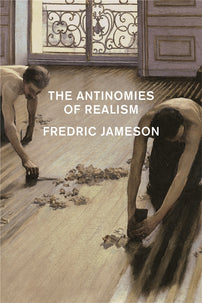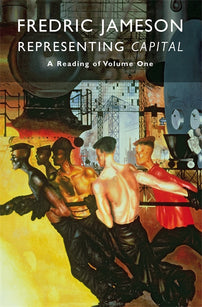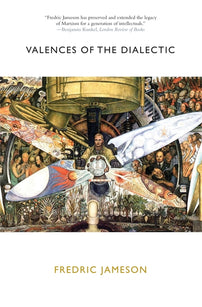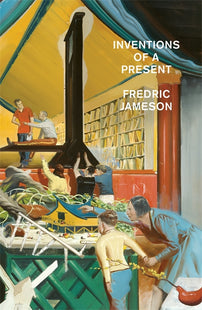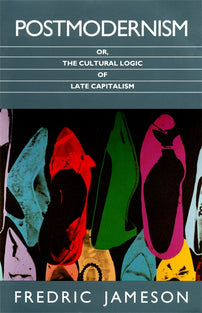The totalising form of a bourgeois life
Steve Edwards revisits Fredric Jameson's The Antinomies of Realism in this instalment of our Jameson at 90 series.

By the mid-1970s, discussion of the realism/modernism distinction had sedimented into a new orthodoxy with the modernist position in clear ascendancy. The newly hegemonic position, epitomised by Screen magazine’s project for a ‘neo-Brechtian’ cinema, was pitted against the ‘classic realist text’. Recognising that there were always dissenting voices, the view that became prevalent characterised realism as naïve and complicit with power. Realism was said to be non-contradictory, miraculously resolving social conflicts through narrative closure or resolution. The voice of the first-person narrator was said to be omniscient: disembodied, all-seeing and objective, but representing interested and dominant perspectives, whether bourgeois or masculine. We only have to recall the exchange between Peter Wollen and T.J. Clark in Screen to understand how marginal the claim for realism mounted by the latter appeared at that time.
[book-strip index="1"]
It might be thought that Jameson’s influential book The Political Unconscious: Narrative as Socially Symbolic Act follows this line of thought. After all, in full Althusserian mode, narrative is said to resolve, in imaginary form, irreconcilable social contradictions. However, Jameson had already rejected this ossified perspective, observing in his important afterword to Verso’s pathbreaking Aesthetics & Politics (1977) that the modernism/realism debate had gone stale and some kind of sublation would be necessary to reanimate the critical charge. Jameson’s commitment to the traditions of dialectical criticism from Hegel to Sartre, which he had mapped out in Marxism and Form allowed him, almost alone, to side-step seminar-room codifications and manufactured stand offs where Brecht could be presented as a disciple of Godard and disruption of diegesis imagined to refigure the bourgeois subject. It is interesting that, in this light, there is no mention of realism in Brecht and Method and perhaps symptomatic that, of the great Marxist critics, he has not penned a book-length study of Lukács. Jameson’s adherence to dialectical modes of attention, at a time when they often drew only sneers, led to some of the major critical studies of the late twentieth and early twenty-first centuries combining astute readings of cultural forms with constant theoretical inventiveness.
Since 1980, Jameson has identified cognitive mapping as a displaced realism that, impossibly, attempts to grapple with the absence of totality in the period of late capitalism and atrophied bourgeois subjectivity. In Antimonies of Realism, he argues that, around 1840, a tension developed between récit and roman, which was to be constitutive of nineteenth-century realism. Whereas the former entails the narrative impulse (story), here called ‘telling’, the latter involves the description of events from the subjective perspective of lived time, which he associates with affect (a point of view seemingly out of time). In the early twentieth century, the contradiction between allegory and meaning and body or affect dissolves, with the narrative dimension taking root in popular forms, while subjective consciousness hollows out high literature. Story-time and heterogenous present split apart. This understanding of realist narrative form leads to a series of astonishingly perceptive studies of Emile Zola, Leo Tolstoy, Benito Pérez Galdós and George Eliot.
[book-strip index="2"]
Affect theory is a relatively new addition to Jameson’s thinking, but the core distinction in Antimonies recodes Lukács’s ‘narrate and describe’ and, ultimately, Hegel’s opposition in his Aesthetics between epic and novel. For Hegel, the novel was the bourgeois version of epic in ‘a world already prosaically ordered’, which displayed a ‘wealth and many-sidedness of interests, situations, characters, relations involved in life, the background of a whole world, as well as the epic portrayal of events’. This heterogenous totality is the condition of any dialectical thought. In this vein, Jameson in Antimonies, but also other works, presents the novel (and film) as the totalising form of a bourgeois life, which, at its best, it offers a powerful de-reifying critique of fetishism and capitalist abstractions. This is to say, narrative form is a problem of social abstraction. What has often been missed is that realism, for Jameson, is centred on form giving – the formalisation of heterogenous narrative elements; the discovery of narrative solutions through which to imagine totality in conditions of social opacity. The problem, if I can end like this, is with Jameson’s fixed and static periodisations, but what seems new in Antimonies is his claim for the survival of the realist mode in a variety of contemporary styles and forms of writing. The contradictions stack up here, but it is yet another example of his continual ability to reinvent questions for Marxist criticism, for which we are permanently in his debt.
See all works by Fredric Jameson here. His new book, Inventions of a Present: The Novel in its Crisis of Globalization is out on May 7.
[book-strip index="3"]
